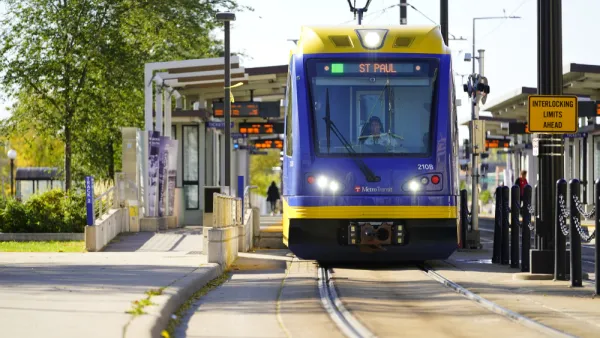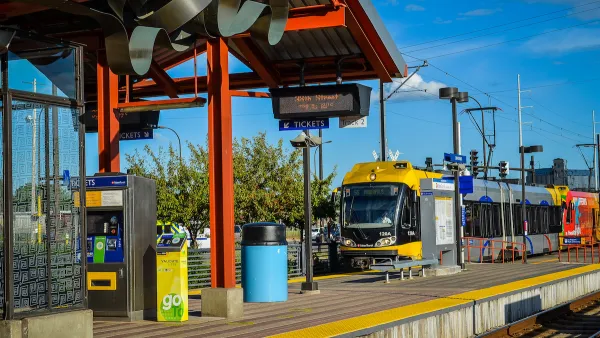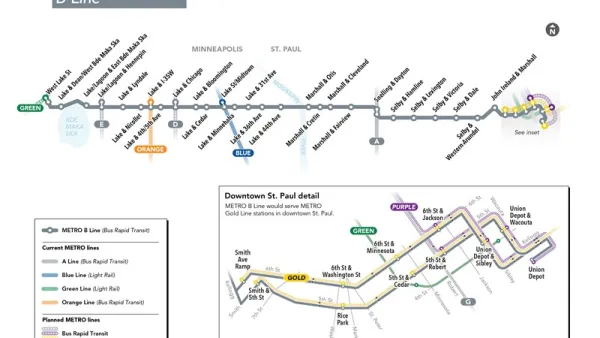With peak hour commuter travel not expected to rebound to pre-pandemic levels, Metro Transit is getting creative in its efforts to attract new riders.

With commute patterns shifting drastically due to the rise in remote work over the last year and a half, public transit agencies across the country must reorganize their services to serve new needs. In the Twin Cities, the need to shift away from focusing on peak-hour service has provided Metro Transit with an opportunity to adjust their services to attract new riders. Bill Lindeke reports on the three new programs that the agency hopes will revive their ridership and encourage more people to use transit for different purposes.
During September and October, Metro Transit has lowered fares to $1 for everyone. The agency hopes this temporary program will "make an impression, to keep these riders going forward" and showcase the effectiveness and safety of the transit system. Metro is also, "for the first time, granting transit passes to specific apartment buildings," granting passes to 20 new multi-family buildings with the goal of reducing the need for private cars. This comes as the Twin Cities have both eliminated minimum parking requirements.
Lastly, Metro buses are now busing St. Paul public school students from four local high schools. "The new busing program is a short-term, emergency stop-gap triggered by a shortage of bus drivers at the district. Forced into triage mode, it marks a big change for thousands of city students." According to Jackie Turner, Chief Operations Officer for the school district, "a side benefit is that the students will get passes that work every day and on weekends (though they are time-limited to respect curfew ordinances). A new generation of students will be used to the liberty that a transit pass provides."
FULL STORY: Without commuters, Metro Transit gets creative about getting riders on board

National Parks Layoffs Will Cause Communities to Lose Billions
Thousands of essential park workers were laid off this week, just before the busy spring break season.

Retro-silient?: America’s First “Eco-burb,” The Woodlands Turns 50
A master-planned community north of Houston offers lessons on green infrastructure and resilient design, but falls short of its founder’s lofty affordability and walkability goals.

Delivering for America Plan Will Downgrade Mail Service in at Least 49.5 Percent of Zip Codes
Republican and Democrat lawmakers criticize the plan for its disproportionate negative impact on rural communities.

Test News Post 1
This is a summary

Test News Headline 46
Test for the image on the front page.

Balancing Bombs and Butterflies: How the National Guard Protects a Rare Species
The National Guard at Fort Indiantown Gap uses GIS technology and land management strategies to balance military training with conservation efforts, ensuring the survival of the rare eastern regal fritillary butterfly.
Urban Design for Planners 1: Software Tools
This six-course series explores essential urban design concepts using open source software and equips planners with the tools they need to participate fully in the urban design process.
Planning for Universal Design
Learn the tools for implementing Universal Design in planning regulations.
EMC Planning Group, Inc.
Planetizen
Planetizen
Mpact (formerly Rail~Volution)
Great Falls Development Authority, Inc.
HUDs Office of Policy Development and Research
NYU Wagner Graduate School of Public Service





























